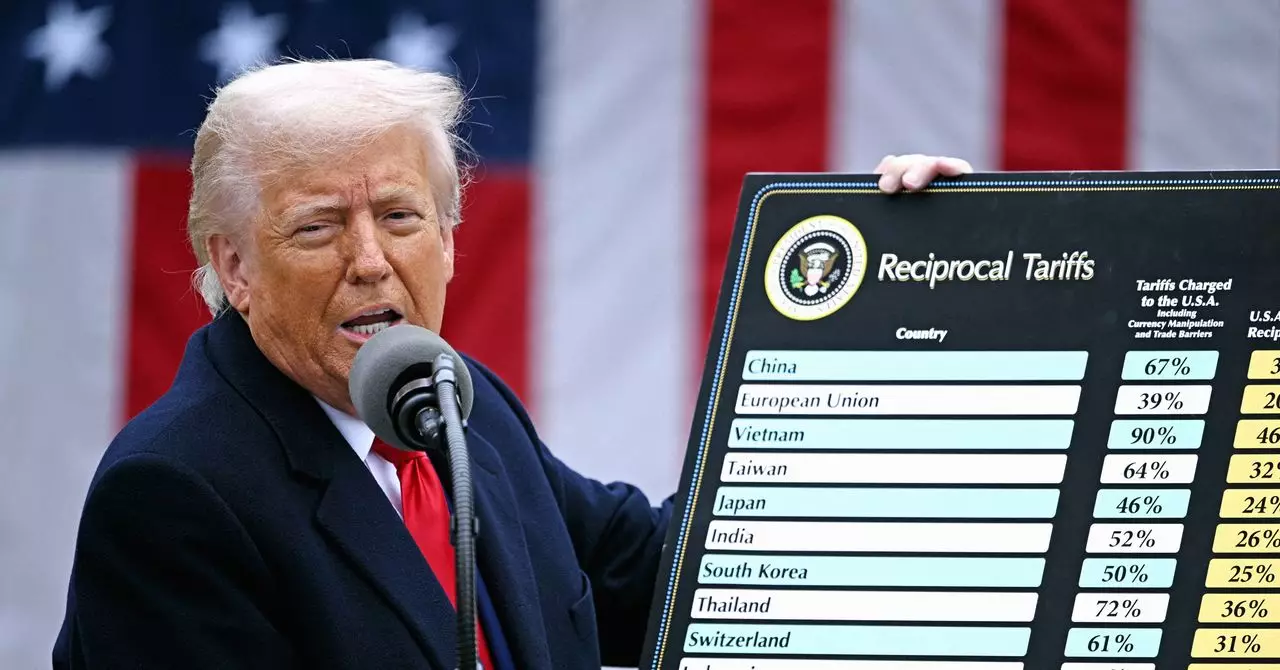The de minimis exemption, a policy that allows for duty-free imports below a specified monetary threshold, has carved out a significant niche in the realm of global e-commerce. Particularly for Chinese retail behemoths like Shein and Temu, this provision has propelled a surge of package shipments into the United States, enabling them to maintain highly competitive pricing. However, while this measure has indeed fueled affordability for consumers, it also raises questions regarding the sustainability of local businesses and the broader implications for U.S. trade policies.
One needs to consider how this exemption has benefited not just major players in direct sales but also platforms like eBay and Etsy. These marketplaces provide a unique opportunity for smaller sellers to thrive, connecting U.S. consumers with Chinese goods without the burden of import duties. The potential easing or elimination of this exemption could lead to a significant disruption in this ecosystem, affecting both consumers and sellers. However, the effects would not be limited to small-scale operations; large corporations like Amazon, which has recently entered the affordable Chinese products market, would face stiff challenges as well.
Political Leverage in a Globalized Economy
The political maneuvering surrounding the de minimis exemption is complex, not merely a trade function but a bargaining chip in the geopolitical chess game with China. Former President Trump’s inclination to revoke this exemption illustrates a tendency to use economic policy as leverage. It raises the specter of heightened tariffs, a shift that could reverberate throughout the e-commerce landscape. The implications here are enormous; a binary approach of high tariffs versus duty-free exemptions risks destabilizing the very marketplace dynamics that have made online shopping as we know it possible.
Ram Ben Tzion, cofounder and CEO of Publican, aptly describes this potential shift as one that could “radically reshape online shopping.” His commentary resonates with the understanding that America’s ability to enjoy the variety and accessibility of international products hinges on such policies. The replacement of the de minimis exemption with high tariffs could introduce complexities that could choke off the flow of affordable products, forcing consumers to pay more or seek alternative marketplaces outside of the country.
The Tech Sector: New Opportunities Amidst Challenges
While many industries may bristle at the prospect of increased tariffs, the tech sector could find new opportunities to capitalize on the situation. Companies invested in logistics and data analytics stand to benefit from the shift in trade policy, offering solutions to help navigate the bureaucratic maze that tariffs and enhanced customs regulations would create. For instance, companies like Palantir are quick to pivot, using artificial intelligence to assist businesses in managing tariff-related decisions.
This nimble adaptability highlights the dichotomy of innovation and regulation. Jay Gerard of Nuvocargo illustrates how the demand for logistics management services has surged as businesses scramble to comply with ever-changing trade rules. While the chaos from fluctuating tariffs has left many importers in costly limbo, it has simultaneously created a fertile ground for services that can streamline customs processes, turning challenges into profit-making avenues.
The Real Cost of Tariffs on Everyday Consumers
The potential consequences of eliminating the de minimis exemption extend far beyond the realm of e-commerce and trade negotiations; they ultimately affect the everyday American consumer. As tariffs raise costs for importers, those costs are likely to be transferred directly to consumers, leading to higher prices across a range of goods. What began as an effort to protect local industries morphs into a situation where the consumer bears the brunt of such economic policies.
Consider the example provided by Gerard regarding the sudden imposition of a 25% tariff on Mexican imports, which was just as quickly retracted. Such volatile policy changes create a landscape of uncertainty that is far from conducive to consistent business practices. Importers are left to navigate a minefield where unexpected fees can significantly disrupt financial planning. This unpredictability leads not only to operational inefficiencies but also affects consumer pricing, resulting in a less stable purchasing environment.
As trade dynamics evolve, the underlying narrative reveals a stark reality: the de minimis exemption serves as a linchpin in the intricate system of global commerce. Its impact cannot be seen solely through the lens of e-commerce giants or local sellers but must encompass the broader implications for consumers and the economic fabric of the nation. This is a pivotal moment that calls for careful deliberation on the direction of U.S. trade policy and its far-reaching repercussions.

